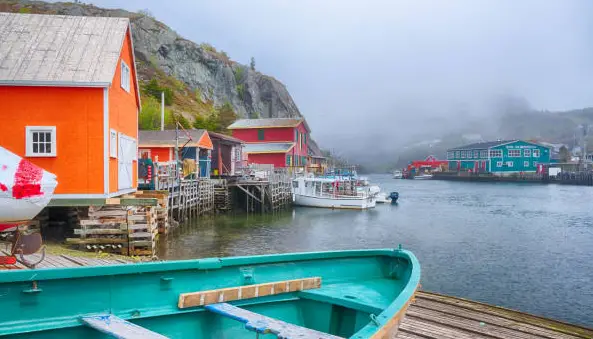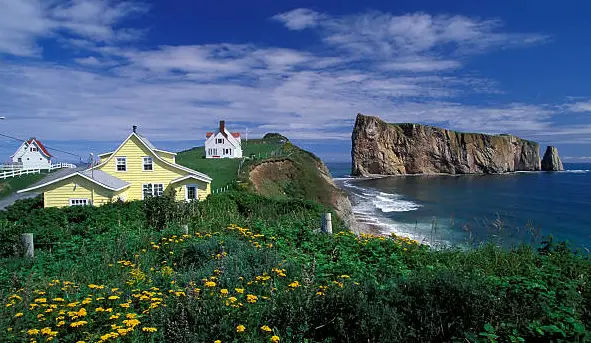Canada's vast coastline stretches over 202,080 kilometers, encompassing diverse ecosystems and a myriad of fishing communities. From the rugged shores of Newfoundland and Labrador to the pristine waters of British Columbia, each region offers its own distinct charm and sustainability efforts. So, if you are a passionate traveler seeking to immerse yourself in the rich cultural heritage and eco-friendly practices of sustainable fishing communities in Canada, then you have a myriad of options to do so.

Canada's coastal communities offer a unique opportunity to experience traditional fishing lifestyles while supporting environmentally conscious initiatives.
Newfoundland and Labrador:
Nestled on the eastern edge of Canada, Newfoundland and Labrador are renowned for their centuries-old fishing traditions and commitment to sustainable practices. Quaint fishing villages dot the coastline, where generations have relied on the bounty of the sea for their livelihoods. Visitors can explore colorful towns like St. John's, the provincial capital, before venturing out to smaller communities like Petty Harbour or Bonavista. Here, traditional methods of cod fishing are still practiced, alongside innovative approaches to sustainable harvesting, such as quota-based systems and selective fishing gear.
Read more: Famous Monuments In Canada | Most Visited Monuments In Canada
Nova Scotia and New Brunswick:
Further south, Nova Scotia and New Brunswick offer a vibrant maritime culture and a strong commitment to sustainability. In Nova Scotia, iconic destinations like Peggy's Cove showcase the region's lobster fishing heritage, while also highlighting responsible harvesting practices and marine conservation efforts. Meanwhile, New Brunswick's coastal communities exemplify a harmonious relationship with the sea, where sustainable fishing methods are deeply ingrained in the local culture.
Gulf of St. Lawrence:

Along the coast, the Gulf of St. Lawrence offers a glimpse into the Acadian way of life, where fishing has sustained communities for generations. Explore the picturesque villages of Prince Edward Island and the Magdalen Islands, where shellfish aquaculture and lobster fishing thrive alongside efforts to protect fragile marine ecosystems.
British Columbia:
Located on the other side of the country, the untamed shoreline of British Columbia offers a distinct yet captivating spectacle. Sustainable salmon fishing and conservation initiatives led by indigenous peoples are the main topics here. Tofino and other picturesque Vancouver Island towns offer eco-tourism and sustainable seafood to visitors. Traditional fishing techniques and the significance of protecting salmon habitats can be better understood with the help of tours led by local First Nations guides.
Read more: What is the cost of healthcare services in Canada?
Supporting Sustainable Practices:
Throughout your journey, it's essential to support eco-friendly accommodations and local businesses in Canada that prioritize sustainability. Always, look for hotels and lodges that have implemented energy-saving measures, waste reduction programs, and support community-based initiatives. Plus, when dining out, seek restaurants that source their seafood responsibly and prioritize sustainable fishing methods.

Final words:
In conclusion, visiting sustainable fishing communities along Canada's coastal areas offers a unique opportunity to connect with nature, immerse yourself in local culture, and support sustainable practices. Whether you're exploring the rugged shores of Newfoundland or the pristine waters of British Columbia, Canada fishing trips leave you with a deeper appreciation for the importance of preserving our oceans for future generations. So pack your bags, embark on an adventure, and experience the beauty of Canada's sustainable fishing communities firsthand!